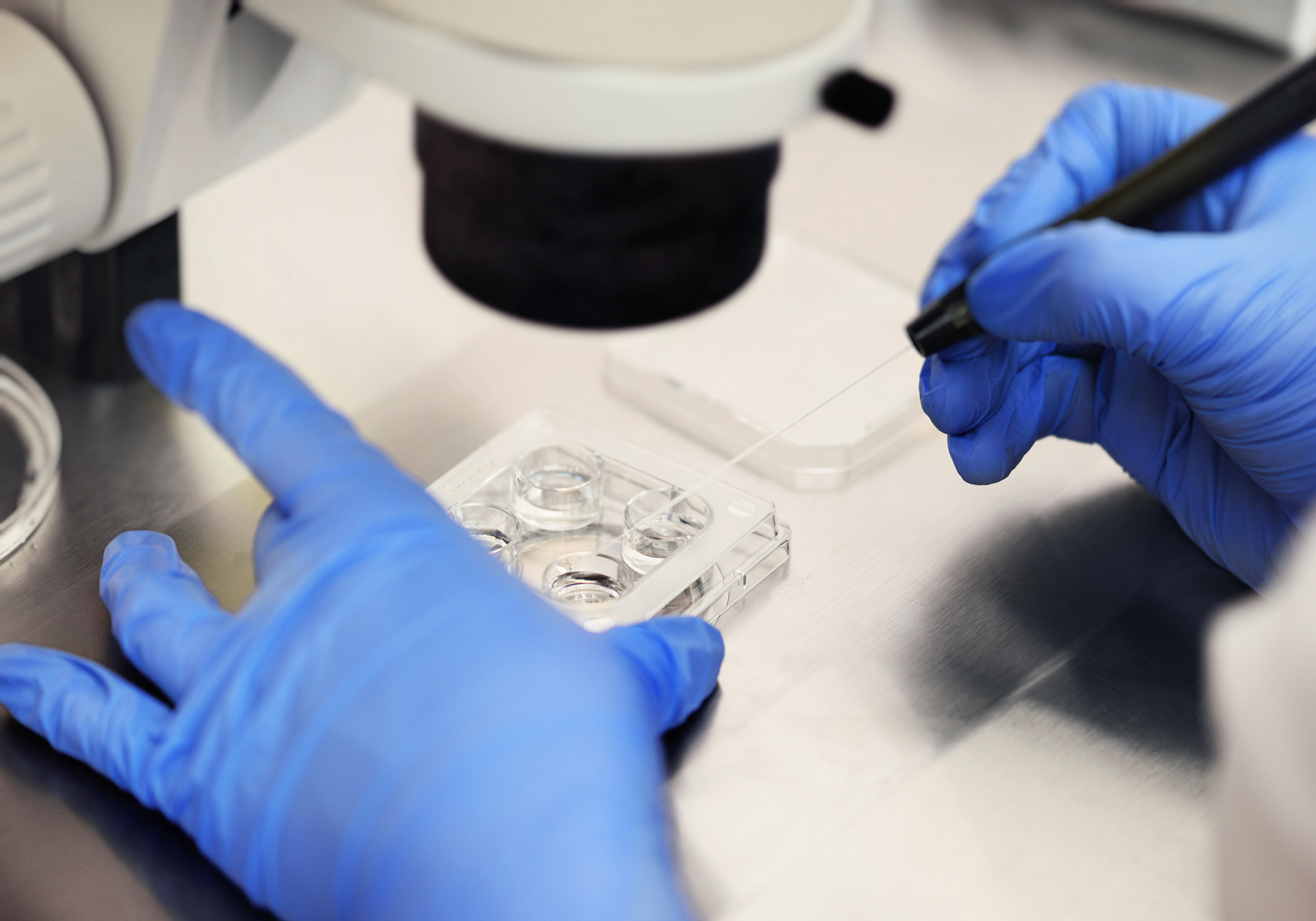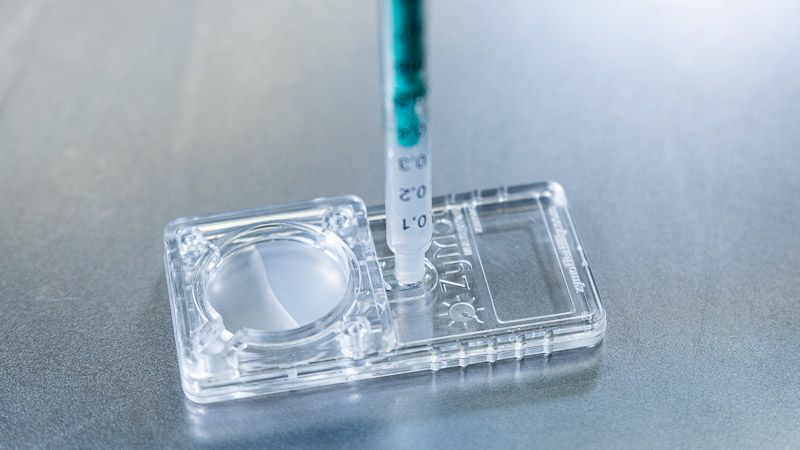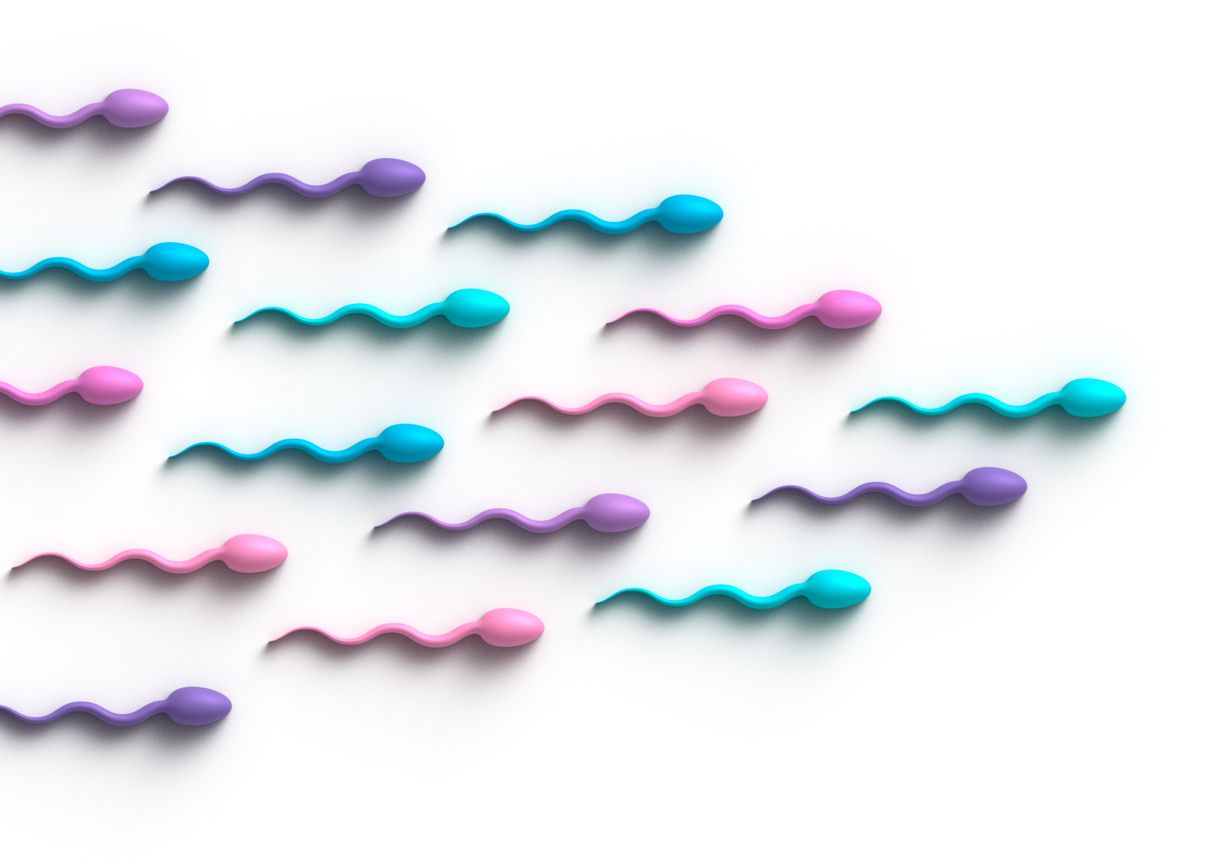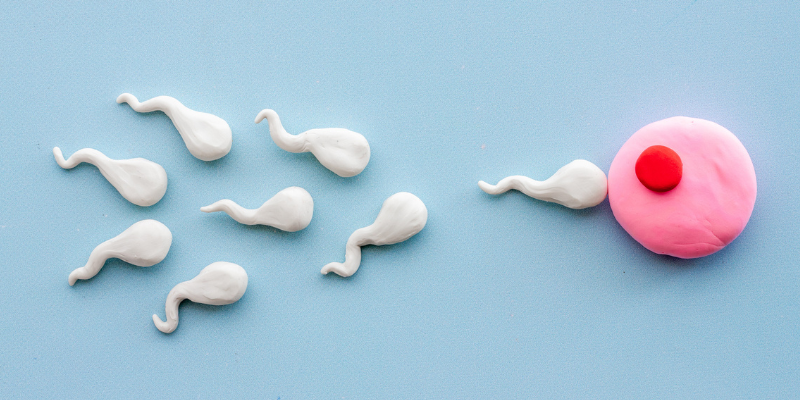Sperm Preparation
Providing a healthy sperm sample is a vital component of achieving a successful pregnancy.

Providing a healthy sperm sample is a vital component of achieving a successful pregnancy. While there are many factors that affect male fertility and the quality of sperm, there are also several steps taken within the lab during an IUI, IVF or ICSI cycle to prepare the sperm for the appropriate treatment.
A sperm sample is usually provided on the same morning as the egg retrieval. Occasionally the sperm is collected ahead of time and frozen, so that it can be thawed out and used on the day of the egg retrieval. Using frozen sperm can assist patients where the male partner is away during the cycle, or for patients using donor sperm as part of their treatment. A sperm sample can be obtained through ejaculation or if necessary, surgically, such as for post-vasectomy patients.
Once collected, the semen is examined under the microscope to assess the count and motility (the ability of the sperm to move or swim efficiently) of the sample. This gives the scientist an indication of whether the sperm sample will be suitable for the requested treatment.

Once the initial assessment is completed, the sperm sample is then washed which involves removing the seminal fluid, isolating the motile sperm, eliminating dead and weak sperm and removing any toxins. This process of washing the sperm, also increases the fertilising capacity of the sperm sample. No matter how healthy you are, there will always be some sperm in your ejaculate that are poorer quality than the rest. To improve your chances of pregnancy, it is really important that, where possible, only the very best sperm are selected to fertilise an egg.
One of the more traditional methods used to wash the sperm sample involves using density gradient centrifugation (spinning fast in a machine). Studies have shown that centrifugation methods can damage the sperm’s DNA which reduces the reproductive potential of the sperm and has the potential, therefore, to lower the chances of a successful pregnancy.
Another method for preparing the sperm sample is to use a sperm sorting chip device such as the ZyMot. With this technique, there is no use of centrifugation, rather the semen sample is loaded onto the ZyMot and incubated at 37oC to allow the motile sperm to swim through the micro pores in the device’s membrane. This process uses the sperm’s natural swimming ability to isolate the best quality motile sperm, resulting in minimal damage to sperm DNA.

Use of the ZyMot device is routine practice at Adora Fertility for preparing all suitable semen samples. Some clinics will charge an extra fee to have the sperm prepared using a device such as the ZyMot. At Adora Fertility, we do not charge our patients any extra fee for using this optimum method of sperm preparation. Once the motile sperm are selected they are then ready for insemination in an IUI, IVF or ICSI cycle.
Using a device such as the ZyMot is particularly useful for men with known high levels of sperm DNA fragmentation, those couples who continue to suffer miscarriage, have poor blastocyst formation and those with unexplained infertility. At Adora Fertility, we are continually reviewing our scientific practices to ensure we provide all our patients with the best chance of conception. If you would like to find out more, please contact us today.
References
Anbari, F. e. (2021). Microfluidic sperm selection yields higher sperm quality compared to conventional method in ICSI program: A pilot study. Systems Biology in Reproductive Medicine, 137-143.
Kocur, O. M. (2022). Can a sperm selection technique improve embryo ploidy? Andrology, 1-8.
Saleh, R. (2003). Negative effects of increased sperm DNA damage in relation to seminal oxidative stress in men with idiopathic and male factor infertility. Fertility and Sterility, 1597-1605.
Shirota, K. e. (2016). Separation efficiency of a microfluidic sperm sorter to minimize sperm DNA damage. Fertility and Sterility, 315-321.
Simon, L. e. (2014). Paternal influence of sperm DNA integrity on early embryonic development. Human Reproduction, 2402–2412.
ZyMot Fertility Healthcare Professionals. (2023). Retrieved from ZyMot Fertility: https://www.zymotfertility.com/healthcare-professionals/
Related Articles

Can you get pregnant with a low sperm count?
Does having a low sperm count mean that you can’t have a baby? In this blog for Men’s Health Week ...

Male Infertility Explained
Dr Mahalakshmi Ragunath sheds light on the topic of male fertility, including lifestyle choices th...